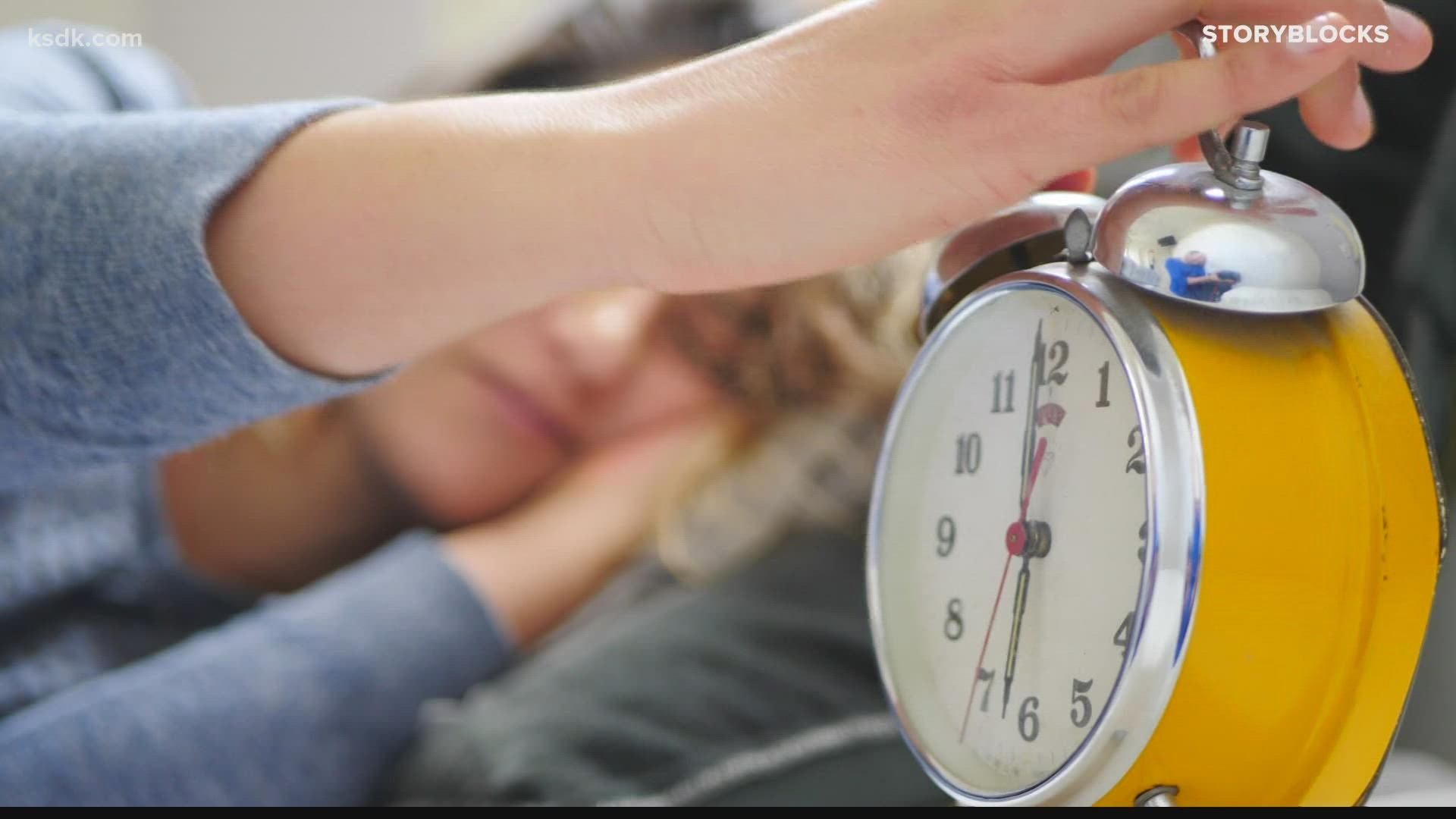ST. LOUIS — Love it or hate it, daylight saving time (DST) is coming to an end. On Sunday, everyone living under DST will roll the clocks back an hour to standard time.
Washington University Biology Professor Erik Herzog describes himself as a circadian neuroscientist.
"Somebody who studies the mechanisms in our body that wake us up and put us to sleep," explained Herzog.
As an expert in rest and rhythms, Herzog is against daylight saving time.
"I'm in favor of getting rid of annual time changes and staying on permanent standard time, so this could be the last time change of your life," said Herzog.
Doing away with daylight saving time would take work at the legislative level. State governments have until March to decide whether or not to keep it.
Herzog says there is a strong argument to do away with springing forward this spring.
"If you're waking up with an alarm clock in the dark, that's not helping your biology," said Herzog. "It's putting you at risk if you drive to work in the dark, if you're a kid waiting for the school bus in the dark. There's greater risk during daylight saving time, increased risk for car accidents and heart attacks and things like that."
On the flip side, falling back may actually be good for our health. Herzog told 5 On Your Side that scientists agree that having more morning light is beneficial for human health.
Herzog says sticking with nature is the most healthy way to live.
"Try and get as much natural sunlight as you can, so put your bed by the window go for a walk in the morning and start using natural sunlight to synchronize your schedule to local time," said Herzog.

